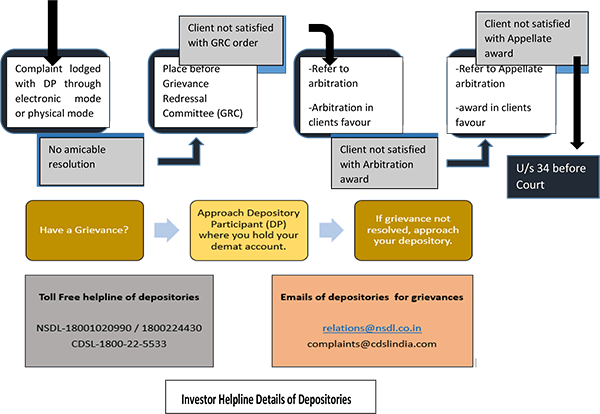Before starting to invest, it is very important to understand the true meaning of investing. Basically, investing is the act of putting money into an asset with the intention of generating a profit or earning a return.
Many people are hesitant to invest because they may not fully understand the concept or feel that it’s too risky. However, investing can provide significant benefits that can help individuals achieve their financial goals.
Why Should You Invest?
Investing is important for a number of reasons. One of the primary reasons to invest is to earn a return on your money. When you invest, you have the potential to earn a profit through the appreciation of your asset’s value or through the payment of dividends or interest.
Another important reason to invest is to protect your money from inflation. Inflation is the rate at which the general level of prices for goods and services is rising.
Over time, inflation can erode the value of your money. Investing can help you keep pace with inflation by generating a return that exceeds the rate of inflation.
Finally, investing can help you achieve your long-term financial goals. Whether you’re saving for retirement, a down payment on a home, or your children’s education, investing can provide a way to grow your money and achieve your financial objectives.
Benefits of Investing
There are many benefits to investing, including:
1. Compounding: One of the most significant benefits of investing is compounding. Compounding is the process by which your investment earns interest, and that interest is reinvested, generating even more interest. Over time, compounding can have a significant impact on your investment returns, as your money grows exponentially.
2. Beating Inflation: Investing can help you beat inflation by generating returns that exceed the rate of inflation. This can help ensure that your money retains its value over time and that you can afford to maintain your standard of living.
3. Diversification: Investing can help you diversify your portfolio, which can help reduce your overall risk. By spreading your money across different assets, such as stocks, bonds, and real estate, you can minimize the impact of any one investment performing poorly.
4. Potential for High Returns: While investing always carries some level of risk, it also has the potential to generate high returns. By investing in high-growth assets, such as stocks or real estate, you can potentially earn a significant profit over time.
5. Tax Benefits: Certain types of investments, such as retirement accounts or municipal bonds, can offer tax benefits that can help you keep more of your money.
What if you DON’T invest
Let’s say you are Tipendra Jethalal Gada a.k.a. Tappu of (the very famous) Taarak Mehta Ka Ooltah Chashmah aka TMKOC. So, Tappu (at 30), has taken responsibility to manage the family business of electronics (Gada Electronics).
Assume he generates a net profit of Rs.50,000/- per month (consider this to be his net monthly income). Also, Tappu spends Rs.30,000/-towards his living, which include expenses like food, medical, transport, shopping, etc.
That means he saves Rs.20,000/- per month.
Tappu is confused – whether he should invest or not. Right now, his primary goal is to not work beyond the age of 50. That means at 50 years, Tappu wants to retire.
To make things simpler, let’s take some general assumptions like:
1. The business will grow annually by 10% and so is the income of Tappu.
2. Inflation will approx be around 7%, i.e. Tappu’s cost of living is likely to go up by 7% annually.
3. Tappu is now 30 years old and wants to work no later than the age of 50, which means there are 20 working years remaining.
4. Till now, Tappu saves a surplus of Rs.20,000/- per month as hard cash. That means not even saving in a savings account.
On the basis of the above assumptions, Tappu will have Rs. 2 crores (approx) at the age of his retirement, as follows:
| Years | Yearly Income | Yearly Expenses | Cash Retained |
| 1 | 600000 | 360000 | 240000 |
| 2 | 660000 | 385200 | 274800 |
| 3 | 726000 | 412164 | 313836 |
| 4 | 798600 | 441015 | 357585 |
| 5 | 878460 | 471887 | 406573 |
| 6 | 966306 | 504919 | 461387 |
| 7 | 1062937 | 540263 | 522674 |
| 8 | 1169230 | 578081 | 591149 |
| 9 | 1286153 | 618547 | 667606 |
| 10 | 1414769 | 661845 | 752923 |
| 11 | 1556245 | 708174 | 848071 |
| 12 | 1711870 | 757747 | 954123 |
| 13 | 1883057 | 810789 | 1072268 |
| 14 | 2071363 | 867544 | 1203819 |
| 15 | 2278499 | 928272 | 1350227 |
| 16 | 2506349 | 993251 | 1513098 |
| 17 | 2756984 | 1062779 | 1694205 |
| 18 | 3032682 | 1137173 | 1895509 |
| 19 | 3335950 | 1216776 | 2119175 |
| 20 | 3669545 | 1301950 | 2367596 |
| Total Corpus at the age of retirement | 1,96,06,622 | ||
Tappu Beta! Don’t get too comfy with your cash stack of Rs. 2 crores, ’cause the set of numbers is gonna be a real kick in your pants (Pairo tale Zameen khisak jayegi!).
| Age | Available Cash | Yearly Expenses | Remaining Cash |
| 51 | 19606622 | 1393086 | 18213536 |
| 52 | 18213536 | 1490602 | 16722934 |
| 53 | 16722934 | 1594945 | 15127989 |
| 54 | 15127989 | 1706591 | 13421398 |
| 55 | 13421398 | 1826052 | 11595346 |
| 56 | 11595346 | 1953876 | 9641470 |
| 57 | 9641470 | 2090647 | 7550823 |
| 58 | 7550823 | 2236992 | 5313831 |
| 59 | 5313831 | 2393582 | 2920249 |
| 60 | 2920249 | 2561133 | 359117 |
| 61 | 359117 | 2740412 | -2381295 |
So, dear Tappu, don’t think you’ll be living like a king on this chunk of change in your post-work life, ’cause it’ll only stretch till 10 years.
As per the above table, (assuming annual expenses growing at the same rate), you will run out of money in the eleventh year. At the age of 61, you will require Rs. 27,40,412 for the year, but you will end with only Rs. 3,59,117. A humongous deficit of Rs. 23,81,295.
What if you DO invest
Tappu got shocked witnessing the above facts and figures and wanted to figure out the other scenario-if he invested in it.
Let’s assume that Tappu invests its surplus in an investment scheme, which grows annually at a rate of 14%.
Now let’s calculate Tappu’s corpus at the age of his retirement:
| In the first year (Rs) | |
| Monthly Income | 50000 |
| Monthly Expenses | 30000 |
| Cash Retained | 20000 |
| Annual Cash Retained | 240000 |
| Annual Growth | 12% |
| Tenure | 20 years |
The final amount in hand = Rs.54460278 as follows
| Years | Yearly Income | Yearly Expenses | Cash Retained | Retained Cash Invested @ 14% |
| 1 | 600000 | 360000 | 240000 | 2893366 |
| 2 | 660000 | 385200 | 274800 | 2906056 |
| 3 | 726000 | 412164 | 313836 | 2911288 |
| 4 | 798600 | 441015 | 357585 | 2909754 |
| 5 | 878460 | 471887 | 406573 | 2902096 |
| 6 | 966306 | 504919 | 461387 | 2888907 |
| 7 | 1062937 | 540263 | 522674 | 2870741 |
| 8 | 1169230 | 578081 | 591149 | 2848098 |
| 9 | 1286153 | 618547 | 667606 | 2821458 |
| 10 | 1414769 | 661845 | 752924 | 2791255 |
| 11 | 1556245 | 708174 | 848071 | 2757882 |
| 12 | 1711870 | 757747 | 954123 | 2721719 |
| 13 | 1883057 | 810789 | 1072268 | 2683103 |
| 14 | 2071363 | 867544 | 1203819 | 2642349 |
| 15 | 2278499 | 928272 | 1350227 | 2599746 |
| 16 | 2506349 | 993251 | 1513098 | 2555562 |
| 17 | 2756984 | 1062779 | 1694205 | 2510039 |
| 18 | 3032682 | 1137173 | 1895509 | 2463403 |
| 19 | 3335950 | 1216776 | 2119174 | 2415859 |
| 20 | 3669545 | 1301950 | 2367595 | 2367595 |
| Total Corpus at the age of retirement | 19606622 | 54460278 | ||
Almost, Rs. 5 crore 45 lacks, which is an amazing 3x more than the previous figure. The calculation makes it clear that investing will put Tappu in a very good financial condition so that he can better deal with his post-retirement life.
Conclusion
In conclusion, investing is an important tool for achieving your financial goals. Whether you’re looking to generate a return, beat inflation, or diversify your portfolio, investing can provide a way to grow your money and achieve your long-term objectives.
While investing always carries some level of risk, the potential benefits are significant and can provide a way to secure your financial future.
Indian investors have several investment options to choose from, and it is important to choose an investment tool that aligns with their investment goals, risk appetite, and time horizon.




